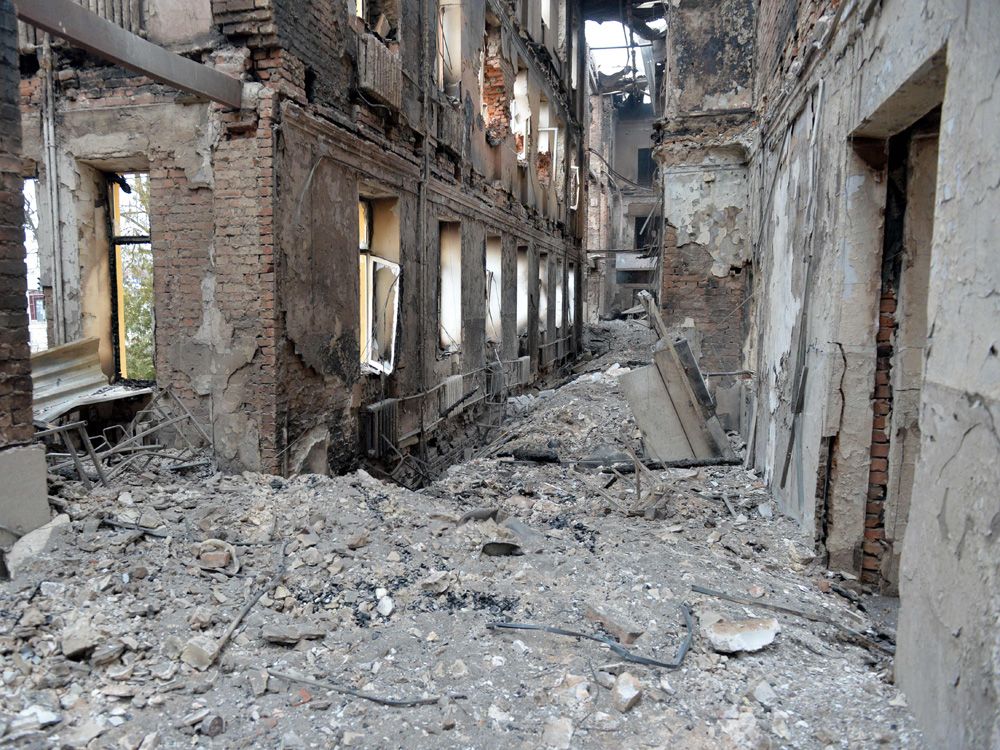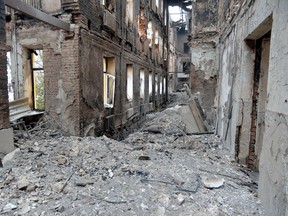Russia’s invasion of Ukraine, and the West’s response, signals the end of Canada’s hopes for the G20

Kevin Carmichael: The G20 was supposed to bring stability. It gets harder with each passing year to say the group has lived up to its promise

Article content
Maybe this is what you get for creating international institutions on the back of an envelope.
Advertisement
Story continues below
This advertisement has not loaded yet, but your article continues below.
Article content
Canada’s Paul Martin and America’s Lawrence Summers decided in the spring of 1999 that the world’s legacy powers and emerging economies such as China and Brazil needed a place to talk. The previous five years had featured one financial crisis after another: Mexico, Southeast Asia, Russia.
Martin and Summers dreamed up the roster of what would become the G20 on the back of a brown manilla envelope in Summers’s office in Washington on April 27, 1999, The Globe and Mail reported in 2010 – ahead of the Toronto G20 Summit, and in the immediate aftermath yet another financial crisis, albeit one whose origins were in the rich world.
The G20 was supposed to bring stability. It gets harder with each passing year to say the group has lived up to its promise. It did ok at co-ordinating the global response to the Great Recession, but, frankly, it hasn’t done much since. Politics kept getting in the way.
Advertisement
Story continues below
This advertisement has not loaded yet, but your article continues below.
Article content
Maybe a group created in the 1990s, when history was supposedly over, was doomed from the start. Five days into Russia’s invasion of Ukraine, it feels naive to think that a group that includes the United States, China, Russia, the United Kingdom, Saudi Arabia, and Turkey ever would have been able to accomplish much.
Over the weekend, the United States, the European members of the G20, and Canada imposed “restrictive measures” that they said would stop Russia’s central bank from “deploying its international reserves in ways that undermine the impacts of our sanctions.” European Commission Ursula von der Leyen emphasized the point on Feb. 27, stating that the commission will “ban the transactions of Russia’s central bank and freeze all its assets, to prevent it from financing (Vladimir) Putin’s war.”
Advertisement
Story continues below
This advertisement has not loaded yet, but your article continues below.
Article content
The founders of a group created in the aftermath of a ruble crisis has now triggered one. The Russian currency collapsed by some 40 per cent, more than during the country’s financial crisis in 1998, according to Karl Schmotta, chief market strategist at Cambridge Mercantile Corp.
-

Live updates: How the Russia-Ukraine crisis is impacting markets, business and the economy
-

Why SWIFT is the financial ‘nuclear option’ when it comes to punishing Putin
-

Posthaste: Why China won’t rupture ties with the West to help Russia when push comes to shove

Russian central bank was forced to resort to extreme measures. It would have preferred to use its vast reserves to buy dollars and euros, and thus protecting the exchange rate in a way that few Russians would have noticed. Instead, it raised its benchmark interest rate to 20 per cent from 9.5 per cent to offset the risk of holding rubles at a moment when the Western powers appear intent on expelling Russia from the global financial system they control via the regulatory power of Washington, London, and Brussels.
Advertisement
Story continues below
This advertisement has not loaded yet, but your article continues below.
Article content
The sanctions on the Russian central bank will, “largely prevent the use of reserves in defending the exchange rate on international markets, and is likely to result in a cascading freeze in liquidity conditions as financial institutions play a game of “hot potato” with ruble transactions,” Schmotta said in a note to his clients. “We expect Argentina-style currency controls to be imposed in the coming days, with an official exchange rate used for domestic transactions, while rates available on international markets are far lower.”
Canada is a small player in this scene. “The Bank of Canada does not hold any of the Russian central bank’s reserves, nor does it transact with any Russian banks,” spokesman Paul Badertsher said in an email. “The Bank of Canada has also notified the Russian central bank that we will not facilitate any transactions for them.”
Advertisement
Story continues below
This advertisement has not loaded yet, but your article continues below.
Article content
But what looks like the death of the G20 as a serious global body must be a disappointment to the globalists in Ottawa who thought they had helped to create something special. It looked that way for a little while. Then history got in the way, forcing the group to choose sides. Now they are fanning flames rather than dousing them.
While the move is likely to isolate the country further and put pressure on the Putin regime, it also represents a human tragedy, with Russian households set to experience a devastating loss in purchasing power – a loss unequaled since the fall of the Soviet Union,” Schmotta said.
• Email: [email protected] | Twitter: carmichaelkevin
Advertisement
Story continues below
This advertisement has not loaded yet, but your article continues below.








